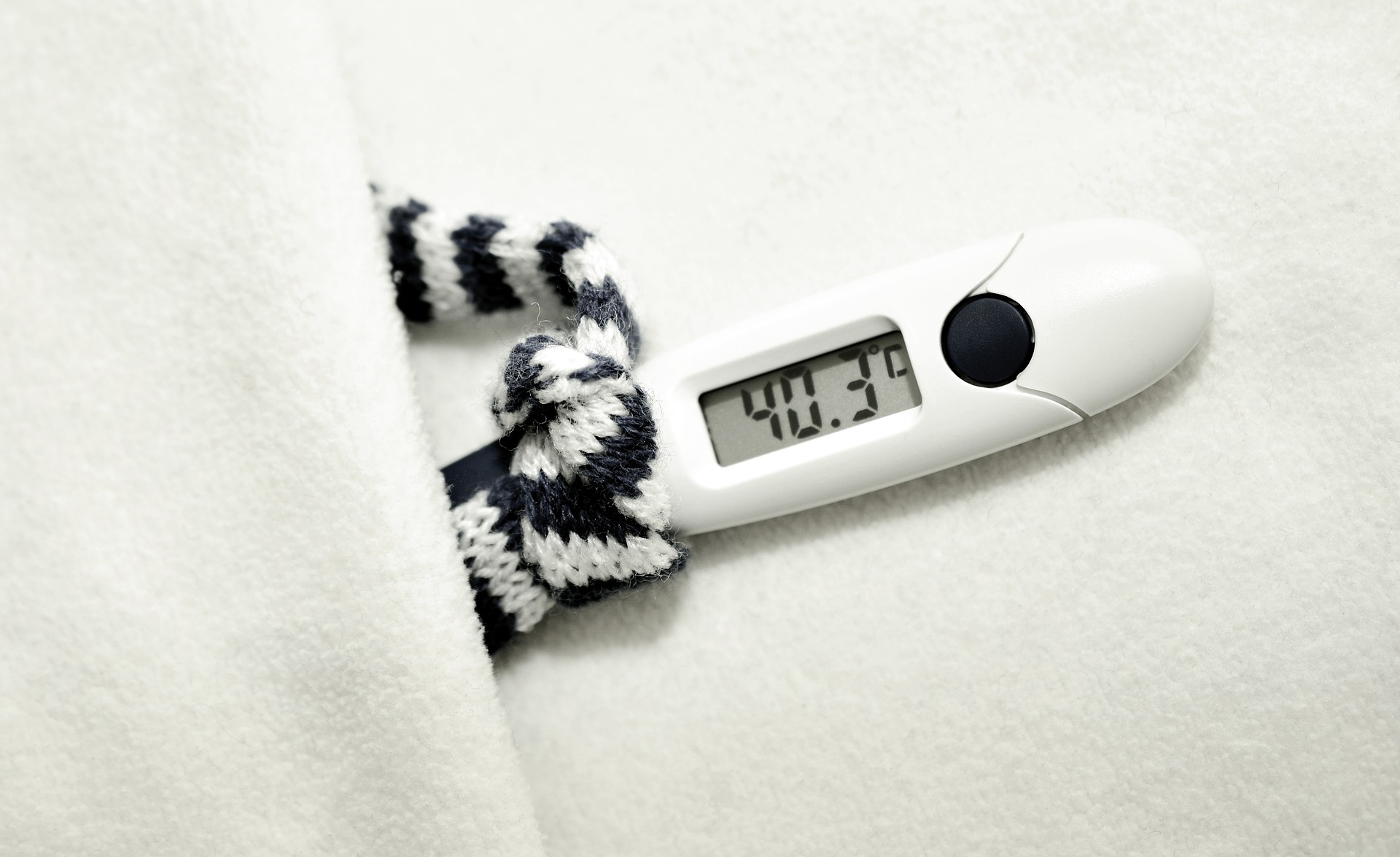The Common Cold
Probably one of the most common illnesses that millions suffer from each year, especially during the cold, wet season of winter. Everyone can detect the symptoms of a cold and have likely experienced them as well:
- Sneezing
- A sore throat
- Stuffy, runny nose
- Coughing
- Body Aches
- Overall feeling unwell
While there is no cure or vaccine for a cold, try these suggestions for treating the symptoms at home:
- Getting plenty of rest
- Drinking fluids
- Gargling with warm salt water
- Using cough drops or throat sprays
- Taking over-the-counter pain or cold medicines
https://medlineplus.gov/commoncold.html
Influenza – The Flu
A very contagious respiratory illness that appears frequently in the winter. There are three types of seasonal flu virus strains: Type A, B, and C. Type A and B cause the yearly influenza epidemics that have people sniffling, aching, coughing and running fevers. Type C also causes flu, but the symptoms are significantly less severe:
- Fever* or feeling feverish/chills
- A cough
- A sore throat
- Runny or stuffy nose
- Muscle or body aches
- Headaches
- Fatigue (tiredness)
*It’s important to note that not everyone with flu will have a fever.
If you get sick with the flu, antiviral medication could be an option prescribed by your doctor. If taken, the drugs could shorten the length of the illness by a day or so and lessen your risk for flu-related complications. Try these remedies to help ease the symptoms:
- Drink lots of fluids – water and electrolytes will be important in staying hydrated
- Rest – get more sleep to rebuild your immune system
- Consider pain relievers – Use an over-the-counter pain reliever
*use caution when giving aspirin to children or teens and always consult a doctor if symptoms progress or worsen.
https://www.mayoclinic.org/diseases-conditions/flu/diagnosis-treatment/drc-20351725
Norovirus – The Stomach Bug
More commonly known as the “Winter Vomiting Bug” and highly contagious. Symptoms include:
- Sudden nausea
- Vomiting
- Diarrhea
- Abdominal cramps
- A headache
- Fever
- Aching muscles
Symptoms commonly clear up after a couple of days so a doctor’s visit is not necessary unless symptoms do not clear up or worsen. Try a pain reliever to alleviate any fever or aches. Get plenty of rest and most importantly with this illness, look out for dehydration. Due to the symptoms, dehydration is the largest risk. Stay hydrated with water and electrolyte drinks.
Strep Throat
It is hard to distinguish the difference between a sore throat from a cold or strep throat. While a cold virus is the most common cause of a sore throat, strep throat is an infection in the throat and tonsils caused by bacteria called group A Streptococcus. Symptoms of a sore throat caused by group A strep are:
- A sore throat that can start very quickly
- Pain when swallowing
- Fever
- Red and swollen tonsils, sometimes with white patches or streaks of pus
- Tiny, red spots on the roof of the mouth
- Swollen lymph nodes in the front of the neck
 Strep throat can be treated by antibiotics, doctors usually prescribe penicillin or amoxicillin, and others if you are allergic to penicillin. The antibiotics will decrease the time and symptoms of the illness and prevent the bacteria from being spread to others.
Strep throat can be treated by antibiotics, doctors usually prescribe penicillin or amoxicillin, and others if you are allergic to penicillin. The antibiotics will decrease the time and symptoms of the illness and prevent the bacteria from being spread to others.
https://www.cdc.gov/groupastrep/diseases-public/strep-throat.html
Bronchitis
Bronchitis is a condition in which the airways in the lungs become inflamed and cause coughing, often with mucus. The cold or flu is usually the cause of acute bronchitis making this another common illness of winter. Symptoms include:
- Coughing associated with mucus production
- Wheezing
- Shortness of breath
- Chest pain
- Low fever
Bronchitis typically goes away on its own without treatment. Ways to relieve an annoying cough and other symptoms are:
- Over-the-counter medicines that loosen mucus
- Non-steroidal anti-inflammatory drug (NSAID)
- Taking a couple of teaspoons of honey
- Using a humidifier
https://www.nhlbi.nih.gov/health-topics/bronchitis
An interesting fact is that most of these illnesses are not caused from being in contact with cold weather but from being indoors and in close proximity to others. So don’t be worried about enjoying some fresh air still, just bundle up first to keep warm.

